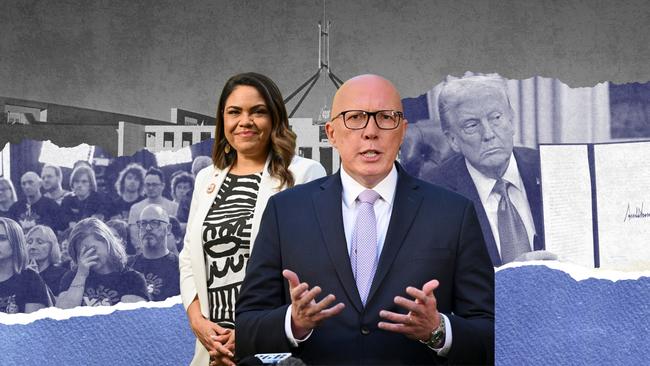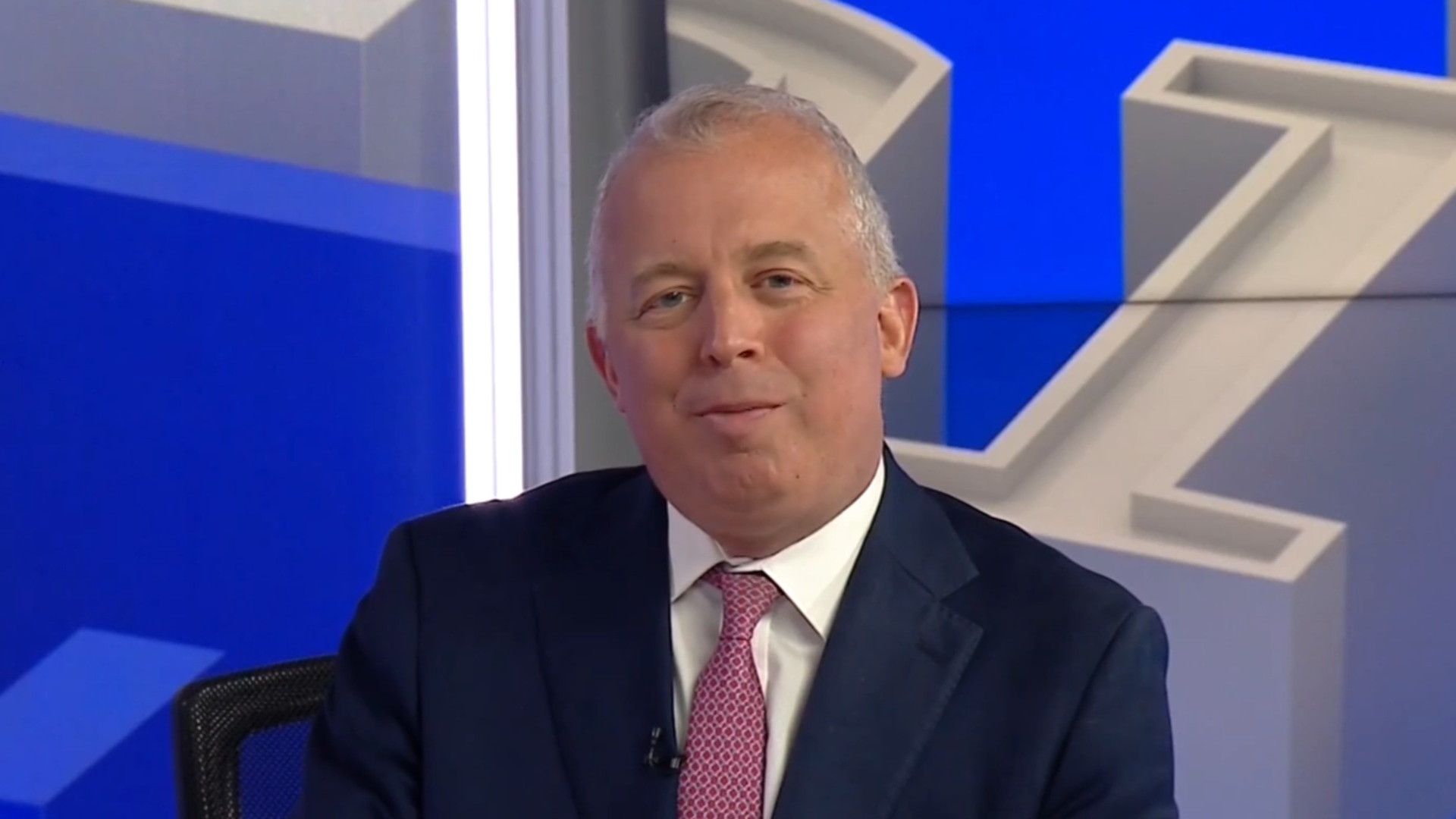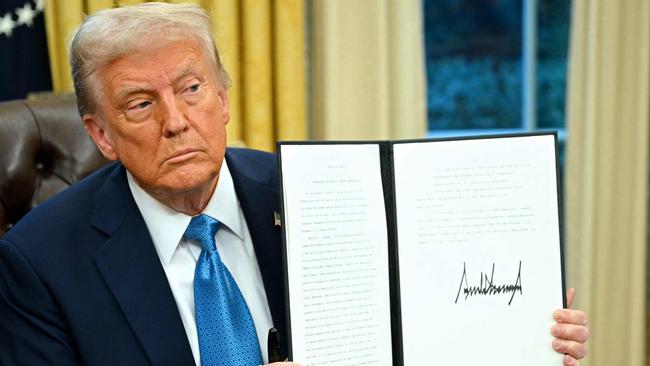Dutton’s focus on mandarins a cultural and economic challenge

That’s an average of 116 a working day, considering the Australia Day long weekend, which we trust they managed to celebrate in a properly patriotic manner.
Like the painters on the Sydney Harbour Bridge, the work of a grant assessor is never done. Hundreds of handouts are up for grabs on the government’s Grants Connect portal, best described as a kind of eBay for rent-seekers. Just go to www.grants.gov.au and click on the “grant opportunities” tab.
Many pursue worthy causes in medicine and science, but since this is a column about fiscal responsibility, here are some of the more risible ones.
There’s the $10m Torres Strait and Northern Peninsula Area Climate Resilience Program, for example, which will pay First Nations climate resilience officers to “build capacity” and “create an enduring dialogue on climate change”.
The $2m First Nations Renewable Hydrogen Engagement Fund aims “to prepare the foundation that will lead to the fulfilment of the overarching objectives of the First Nations Renewable Hydrogen Engagement Fund”.
The funding will provide further stimulus for the bullshit economy but is of doubtful benefit to the taxpayer.
As Gough Whitlam’s private secretary, Peter Wilenski, once observed: “The first beneficiaries of any new program are the persons hired to administer it.”
Wilenski’s boss set the benchmark for bloated government for almost half a century. Commonwealth government spending rose from 18.9 per cent of gross domestic product in 1971-72 to 24.8 per cent in 1975-76.
Anthony Albanese’s administration is even flabbier. Government spending rose from 24.8 per cent of GDP in 2022-23 to a forecast of 26.5 per cent this year, rising to 27.2 per cent in 2025-26.
Of the 1.1 million jobs Labor boasts it has created, seven out of 10 are paid for by the government, either directly or indirectly, worsening the imbalance between those employed to create wealth and those who merely spend it.
Albanese has added some 36,000 public servants to the government’s payroll in Canberra. The opposition has them in its sights.
In a Friday speech to the Menzies Research Centre, Peter Dutton said he had not met an Australian whose life has been improved by the expansion of the public service. There were many whose lives were harder off because of extra red tape.
“Positions advertised have included culture, diversity and inclusion advisers, change managers, and internal communication specialists,” he said.

Dutton signalled his determination to reverse the expansion of government, promising to cut imprudent spending and scale back the public service in “a responsible way”.
In political terms, he has nothing to lose.
In the ACT, 66 per cent of second preferences went to Labor in 2022. Outside the ACT, nobody cares, so long as frontline jobs are protected.
It is vital that Dutton succeeds. The inflationary effects of government spending are well known, but the mischief wrought by expanding government is cultural as well as economic.
A report published last week by the Page Research Centre draws a horrifying picture of the compounding cost of overlapping red, green and black tape. In Victoria, for example, farmers must comply with 90 state and 37 federal regulations, totalling almost 2.21 million words. Critical projects are routinely delayed by legal activism by cashed-up environmental zealots, including the taxpayer-funded Environmental Defenders Office.
In 2023, the EDO’s wage bill was $11m, enough to assemble a sizeable standing army to fight the culture war. Dutton has promised to strip its funding.
The Page report estimates the cost of lost investment from green lawfare at $65bn a year, citing significant delays to major projects such as the McPhillamys gold project and Santos’ Barossa gas project.
It is no accident the fastest-growing sector of the economy under this government has been public administration and safety.
Many government programs are little more than make-work schemes for graduates with degrees that would render them unemployable in the private sector. They emerge from intellectually corrupted universities well-basted in critical theory, ready to pursue their agenda administratively when democratic means fail.
In October 2023, Australians overwhelmingly rejected affirmative action – the granting of special privileges according to race – by rejecting the voice. Yet government grants are awarded almost every day attached to schemes that do precisely that: $26.5m for the Remote Jobs and Economic Development Program, $2m for the Care Leavers, Stolen Generations and First Nations Forgotten Australians Aged Care Awareness and Education Campaign; an unspecified amount in grants to native title anthropologists, to name but three.
Experience tells us that none of these schemes is likely to deliver the promised benefit and will certainly have perverse consequences.
Nampijinpa Price knows the damage caused by pernicious government programs better than most. She knows the disparities between remote and regional communities and the rest of Australia won’t be reduced by slapping new names on failed policies.
She knows how a nest-feathering Aboriginal elite hijacks such programs.
Nampijinpa Price has the authority and the courage to insist that results must justify government funding.

Yet those who have watched with joy the signing of executive orders in the White House by the world’s wokebuster-in-chief will be willing Dutton to go much further.
They will have noted that the defunding of DEI programs has met no effective resistance, save for bouts of anguished hand-wringing among CNN panellists. They will be encouraged by Donald Trump’s denunciation of renewable energy and his commitment to burn as much fossil fuel as it damn well takes to keep the economy thriving.
Cautious moderates in the Liberal Party fear that Dutton cannot win the next election posing as Australia’s Trump.
As Paul Kelly wrote in The Weekend Australian, the difference in the political dynamic is more significant than our common language and values might lead us to expect.
Yet Dutton has already gone further than any previous Coalition leader to challenge woke sensitivities by voicing concerns about DEI, taking aim at welcome to country ceremonies and announcing a one-flag policy.
Like Trump, his bold statements have met surprisingly little resistance. It is further evidence of the weakness of the old order and that the change in the zeitgeist extends well beyond America’s borders.
Nick Cater is a senior fellow at Menzies Research Centre.





Say what you will about the productivity of commonwealth public servants, but between them they signed off on 1045 grant applications in the past fortnight.